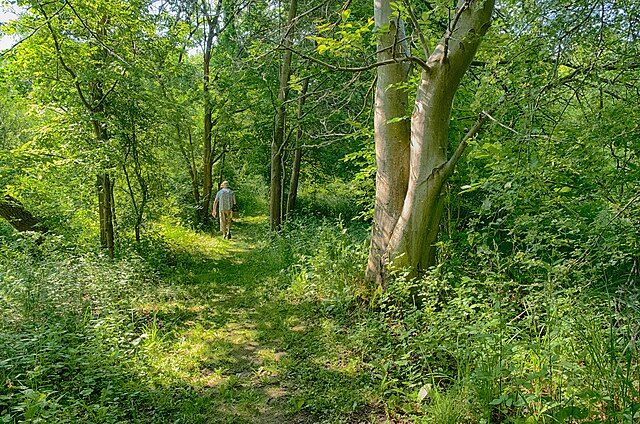
People’s connection with nature has fallen by more than 60% since 1800, almost exactly mirroring the decline of words such as river, moss and blossom from books, according to new research.
Computer modelling suggests that this disconnection will continue to deepen unless there are major policy shifts and societal changes. The most effective interventions, the study found, are introducing children to nature at an early age and radically greening urban areas.
The research, led by Professor Miles Richardson of the University of Derby, tracked the erosion of nature in people’s lives over the past 220 years by analysing urbanisation, wildlife loss in neighbourhoods and, crucially, the breakdown in parents passing on engagement with nature to their children.
Published in the journal Earth, the study also documented the disappearance of nature words from books between 1800 and 2020, with the sharpest decline – 60.6% – recorded in 1990.
The modelling warns of an ongoing “extinction of experience”, with future generations becoming increasingly detached from the natural world because it is absent from their surroundings and no longer transmitted through family life. Previous studies have shown that a parent’s own relationship with nature is the strongest predictor of whether their child will develop one.
“Nature connectedness is now accepted as a key root cause of the environmental crisis,” said Richardson. “It’s vitally important for our own mental health as well. It unites people and nature’s wellbeing. There’s a need for transformational change if we’re going to change society’s relationship with nature.”
Richardson said he was struck by the scale of change required to reverse the decline. For example, increasing the availability of biodiverse green space in a city by 30% might appear ambitious, but his modelling suggests a city would need to be made ten times greener to restore levels of connection with nature.
The study also found that popular engagement campaigns, such as the Wildlife Trusts’ #30DaysWild, while valuable for wellbeing, are not sufficient to halt the long-term intergenerational decline in nature connectedness. Far more effective, it concluded, are initiatives that immerse children and families in nature from the start, such as forest school nurseries.
Another challenge is timing: the modelling indicates that policies transforming early education and urban environments must be implemented within the next 25 years to reverse the downward trend. If achieved, however, the gains in nature connectedness could become self-sustaining.
Richardson added that the societal changes required may not be as daunting as they sound, given how low the baseline of connection has already dropped. One recent study, for example, found that residents of Sheffield spent A study found that people in Sheffield on average spent just four minutes and 36 seconds in natural spaces each day.
“Increase that by [a factor of] 10, and people are spending 40 minutes outside every day – that may be enough,” said Richardson. “Working with families and parents to engage children with nature with a real focus on that intergenerational transmission is key. There’s already a lot of focus on connecting children with nature but I prefer to say – don’t disconnect them. A newborn child is much the same as a child born in 1800. Children are fascinated by the natural world. It’s maintaining that through their childhood and schooling that’s essential, alongside urban greening. There’s policies starting to do that but we’ve got to think in transformational terms – not 30% but 1,000%.”
There are, however, tentative signs of a cultural shift. Richardson noted that while the use of nature words in books plummeted between 1800 and 1990, the decline has since eased – with the overall drop now standing at 52.4%.
“Is it a genuine eco-awareness? Is it the British trend for nature writing? Is it ‘real’ or is it an artefact of the data? I don’t know,” said Richardson. “There has also been an increasing interest in spirituality in recent decades so that might reflect people getting back in touch with nature.”
——————————————————————————
At Natural World Fund, we are passionate about restoring habitats in the UK to halt the decline in our wildlife.

